
views
- To “wear your heart on your sleeve” means to make your emotions known, or to not hide how you feel.
- The phrase was first recorded in Shakespeare’s tragic play, Othello, when the villain confesses his crimes to the audience.
- Example: “I can always tell how you feel since you wear your heart on your sleeve.”
Meaning

The phrase means to show your emotions, or to make them obvious. A person who wears their heart on their sleeve is someone who doesn’t hide how they feel. Rather, you can read their emotions pretty easily–if they’re angry, sad, happy, or anything else, you can tell by their expression, what they say, or how they act. Though, it's most commonly used in relation to romantic feelings. Someone who "wears their heart on their sleeve" might be obvious about a crush, or they might be known for having especially strong feelings in romance generally. Person 1: “Josh can’t stop smiling whenever Mary’s around.” Person 2: “He’s definitely into her. The guy wears his heart on his sleeve.”
Origin
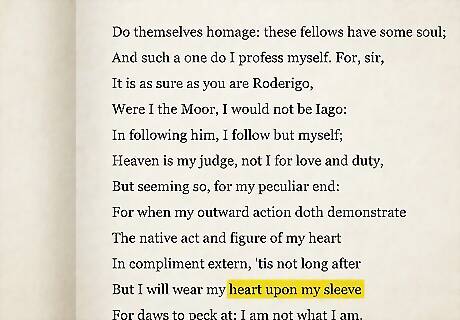
The first recorded use of the phrase was in Shakespeare’s Othello. The tragic play was written in about 1603. In it the villainous Iago, who betrays Othello, the main character, says the line, “I will wear my heart upon my sleeve.” In the context of the play, Iago is confessing his crimes to the audience, and says that by doing so, he’s making his guilt clear and inviting punishment. “‘It is as sure as you are Roderigo, / Were I the Moor, I would not be Iago. / In following him, I follow but myself; / Heaven is my judge, not I for love and duty, / But seeming so, for my peculiar end; / For when my outward action doth demonstrate / The native act and figure of my heart / In compliment extern, ’tis not long after / But I will wear my heart upon my sleeve / For daws to peck at. I am not what I am.’”
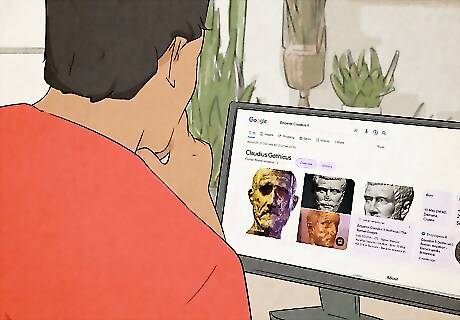
The phrase may have roots in Middle-Age festivals. In the Middle Ages, Emperor Claudius II made marriage illegal because he thought that single men made better soldiers. Once a year, however, during an annual festival, he allowed these men to randomly select a lady to temporarily partner with. The man would then wear her name on his sleeve. In this way, “heart on your sleeve” literally refers to wearing the name of your sweetheart, or romantic partner, on your sleeve.
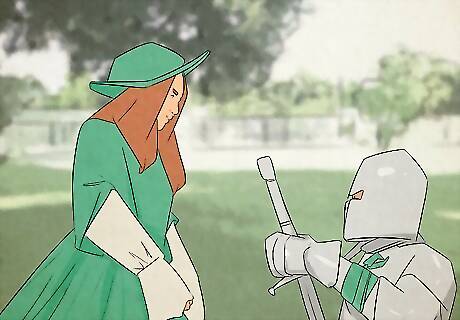
The phrase might also originate in the ancient sport of jousting. Jousting, a sport where 2 knights would attempt to knock each other off their horses, was also popular in the Middle Ages. Some historians speculate that, while competing, knights would honor certain ladies of the royal court by wearing a token of hers around their arms, like a handkerchief or a flower. Back then, the word “sleeve” also referred to a piece of armor worn on the arm.
Using the Phrase

Use the phrase to describe someone who doesn’t hide how they feel. Some people are easy to “read.” If you have a friend whose emotions always show on their face, you might say they wear their heart on their sleeve. And there are lots of other ways someone who wears their heart on their sleeves might show emotion: in their body language, their words, or in their hobbies or art. “I could tell you were upset when you came home, since you always wear your heart on your sleeve.” “I really admire how you let your emotions show like that! I wish I could wear my heart on my sleeve like you.”

Describe someone who can’t hide a crush as “wearing their heart on their sleeve.” The phrase is especially useful when talking about people who are in love, particularly when they can’t seem to hide their attraction. Whether it’s a crush or a budding romance, lovers tend to wear their hearts on their sleeves. “He makes me feel so happy, I can’t help but wear my heart on my sleeve and tell everyone about him.”
Related Phrases

"I’m placing my cards on the table." To “put your cards on the table” means to tell someone about your intentions or plans, often in an honest or direct way. It likely originated from card games, when someone playing poker or a similar game reveals their hand to the other players. “I’m putting my cards on the table here—I have feelings for you.”

"I'm an open book." To “be an open book” means that other people understand you easily, or know a lot about you. Someone or something that’s an open book tends not to hide their personality. “Stacy’s an open book; she’ll tell you her whole life story if you ask.”

"They’re showing their true colors." To “show your true colors” means to reveal how you really feel or think about something. The phrase is often used when someone’s bad or negative beliefs are made known. “He said he liked me, but he showed his true colors when he asked her to prom instead.”













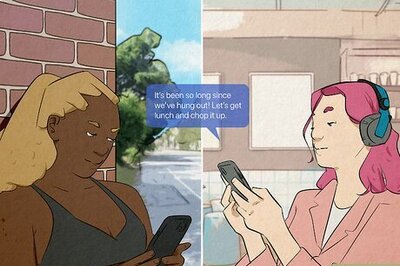


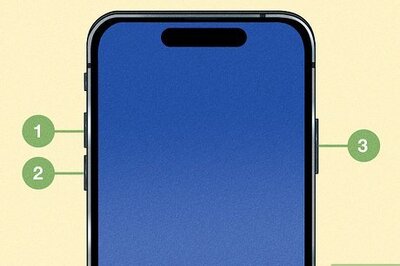
Comments
0 comment